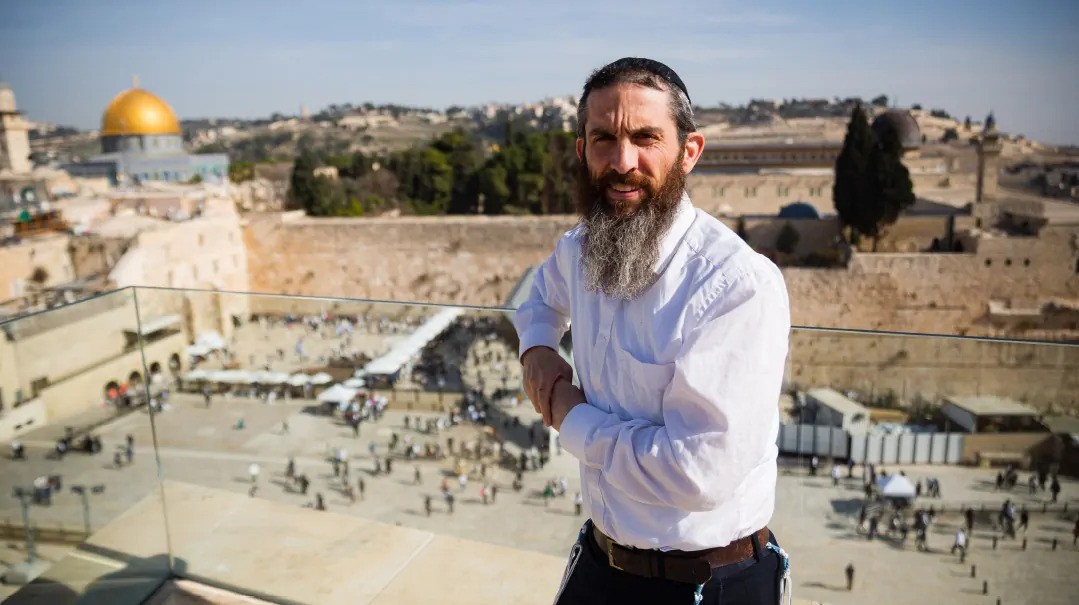OPINION: The Surprising Secret Behind Israeli Happiness
Despite war, rockets, and constant threats, Israel ranks as the world's 5th happiest country in 2024 - a mind-bending reality that has experts and outsiders scratching their heads. Through a powerful mix of tight-knit communities, stubborn optimism, and a deep sense of purpose, Israelis have cracked the code on finding joy in tough times.

As I sit here in Israel, amidst the ongoing conflict and challenges we face, I'm struck by a paradox that many outsiders find perplexing: despite the hardships, Israelis consistently rank among the happiest people in the world. In fact, Israel was recently rated the 5th happiest country globally and 2nd for young people according to the 2024 World Happiness Report.
This may seem counterintuitive, especially given the current war and the constant existential threats we've faced for decades. But as someone who has lived and taught here for years, I can attest that this happiness is real and deeply rooted in our culture and values.
The key to understanding Israeli happiness lies in recognizing that true happiness isn't simply about feeling good when things go our way. It's not the fleeting joy of winning a game or receiving praise that makes us feel good, but when someone insults us then we feel bad. That is a transitory feeling. Real, lasting happiness stems from three fundamental pillars: purpose, attitude, and community.
First and foremost, Israelis live with a profound sense of purpose. We are acutely aware of our history, our traditions, and our mission. Our connection to something greater than ourselves provides a wellspring of meaning that sustains us through even the darkest times.
As Edith Zakai-Or, CEO of the Maytiv Center for Positive Psychology at Reichman University in Herzliya, pointed out, "When you feel that you are doing something for the greater good, it makes you happy".
Secondly, our attitude towards life's challenges is crucial. In Israel, we don't expect life to be easy – we expect it to be difficult. But crucially, we refuse to be victims of our pain. Instead, we use our hardships as catalysts for growth and building resilience. This perspective allows us to find strength and even joy in the face of adversity.
Lastly, the importance of community cannot be overstated. In Israel, we have strong family units and a deeply ingrained sense of social connection. Whether it's Shabbat dinners, army service, or simply the close-knit nature of our society, we are constantly surrounded by a support network of friends and family. As Zakai-Or said in a recent interview, "In Israel, if you don't go to a Shabbat dinner, it is a crisis in the family. So there's always someone that you are connected to".
These three pillars – purpose, attitude, and community – form the bedrock of Israeli happiness. They provide us with the tools to not just endure hardships, but to thrive in spite of them.
It's important to note that this happiness isn't blind optimism or denial of our challenges. We are acutely aware of the dangers we face and the toll they take. In fact, since October 7th, our negative emotions have increased significantly, as reflected in the World Happiness Report. Yet, our overall life satisfaction remains high.
This resilience is partly due to our historical perspective. As one Israeli student put it when asked this question, "We experienced the holocaust, we experienced pogroms, we experienced expulsions... we already experienced every negative thing that can happen, so we can't really say 'that's new and never happened to us'". This long view allows us to contextualize current hardships within the broader arc of Jewish history.
Moreover, our challenges often serve to strengthen our sense of unity and shared purpose. The mobilization of our population in times of crisis, while undoubtedly stressful, also reinforces our communal bonds and sense of collective mission. Even our losses, as tragic and painful as they are, often motivate us to become stronger as individuals as well as a collective.
It's also worth noting that our happiness is not just a cultural quirk but is reflected in tangible aspects of our society. Israel boasts a strong economy, a high degree of social involvement, and excellent health services. These factors contribute to a stable foundation of life satisfaction that persists even in turbulent times.
I'm confident that these core elements of Israeli happiness will continue to sustain us even during the current conflict. Our sense of purpose, our resilient attitude, and our strong communities are not just sources of happiness – they are the very essence of our national character.
The secret to Israeli happiness is simple: we love life more than death. We choose to focus on building, growing, and supporting each other, rather than succumbing to despair. In doing so, in connecting with one another, we find a deep, enduring happiness that transcends our circumstances.
---------------
About the author:
After working as a DJ in London, and spending six years becoming a monk and martial arts expert in Asia, Rabbi Dov Ber Cohen moved to Israel and ended up discovering the depth, beauty, truth, and wisdom of Judaism.
Rabbi Cohen is now a senior Lecturer at the Aish World Center in Jerusalem, and Founder/Director of Living in Tune: Authentic Jewish Mindfulness (www.litmindfulness.org).